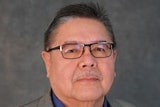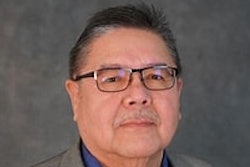WASHINGTON
A resolution that formally apologizes to American Indians for years of government mistreatment and abuse will be part of an Indian health care bill expected to pass the Senate later this month.
Kansas Sen. Sam Brownback, who has pushed the measure since 2004, said he hopes the measure “helps heal the wounds that have divided America for too long.”
“For too much of our history, federal-tribal relations have been marked by broken treaties, mistreatment and dishonorable dealings,” said Brownback, a Republican. “We can acknowledge our past failures, express sincere regrets and establish a brighter future for all Americans.”
The resolution says the federal government forced Indians off tribal lands, stole tribal assets and is responsible for “official depredations, ill-conceived policies and the breaking of covenants” with tribes.
The Senate added the resolution as an amendment to the health care bill by voice vote last week.
“It is meaningful because you’ve got to heal the wounds at some point in time to move forward,” said Joe A. Garcia, president of National Congress of American Indians.
“But it’s one thing to just apologize and another thing to do something while you’re apologizing,” said Garcia, who is governor of the Ohkay Owingeh Pueblo in northern New Mexico. “You have to put words into action and the action is to improve the problems created by those ill-conceived policies.”
It is unusual for Congress to apologize for official government acts, though there have been exceptions, including a 1988 apology for interning Japanese-Americans in detention camps during World War II and a 1993 apology to native Hawaiians for the unlawful overthrow of the Hawaiian Kingdom.
Earlier last week, the Australian government issued a formal apology to Aborigines for decades of racist policies and abuse against that country’s original inhabitants.
The Indian apology resolution in the Senate bill is careful to state that it is not meant to authorize or support any claim against the U.S. government or serve as a settlement of any claim.
Steve Ortiz, tribal chairman of the Prairie Band Potawatomi Nation in northeast Kansas, called the apology “a great gesture” but said he doesn’t want Congress to lose sight of the more practical needs of American Indians.
“In the end, it’s Congress’ commitment to helping the native nations with health care, education, housing and infrastructure that’s what counts,” Ortiz said.
Click here to post and read comments
© Copyright 2005 by DiverseEducation.com















